Selling Your Home For The First Time? Here’s a Step-by-Step Timeline To Follow In Singapore
May 19, 2025
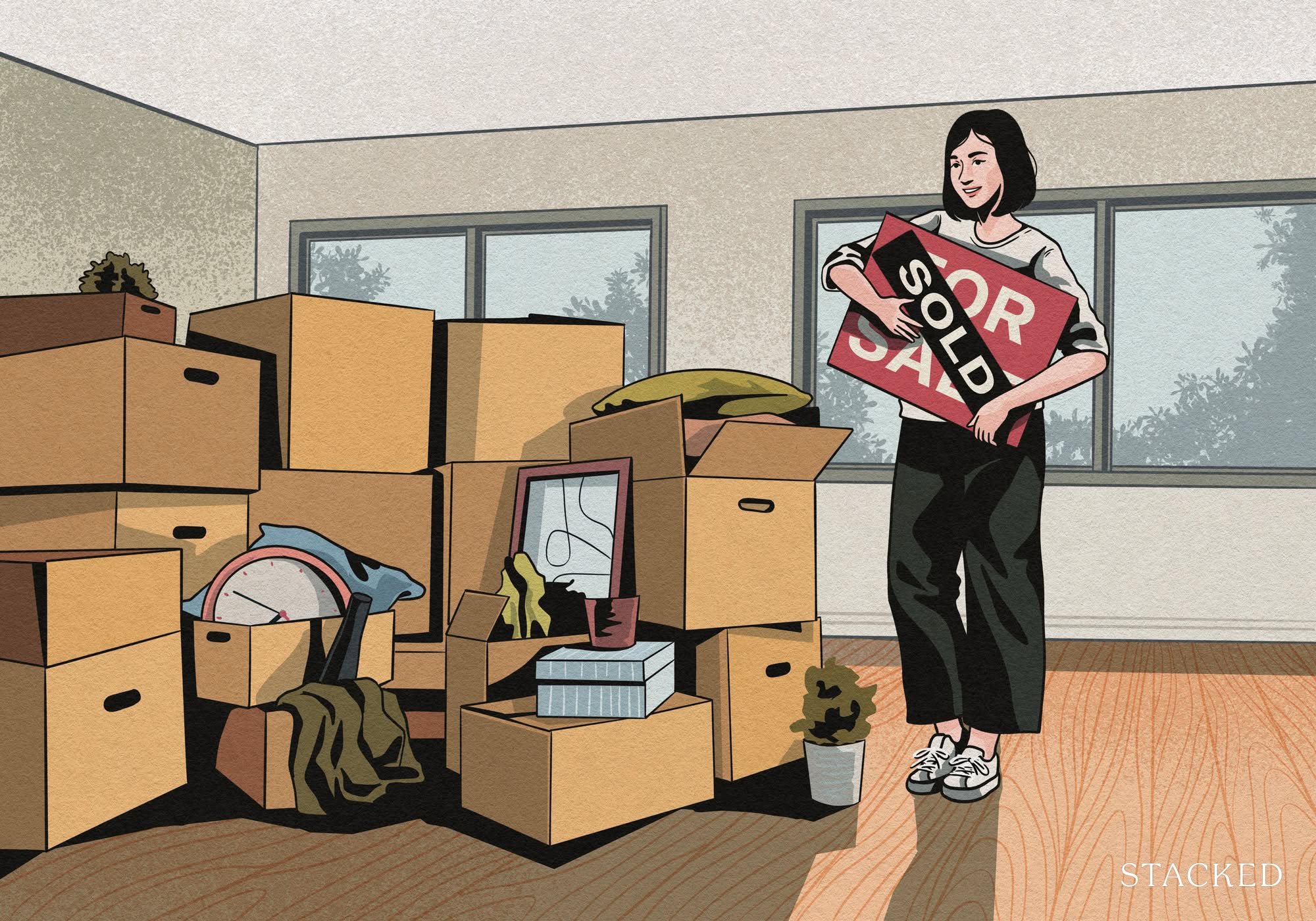
If you think buying your first property was difficult, wait till you come into the even more challenging role of first-time seller. From having strangers traipse through your home to the nerve-racking process of price-setting, it’s described by many as being even tougher and less pleasant than buying. For those facing their first sale, here’s a simple timeline to prepare for:
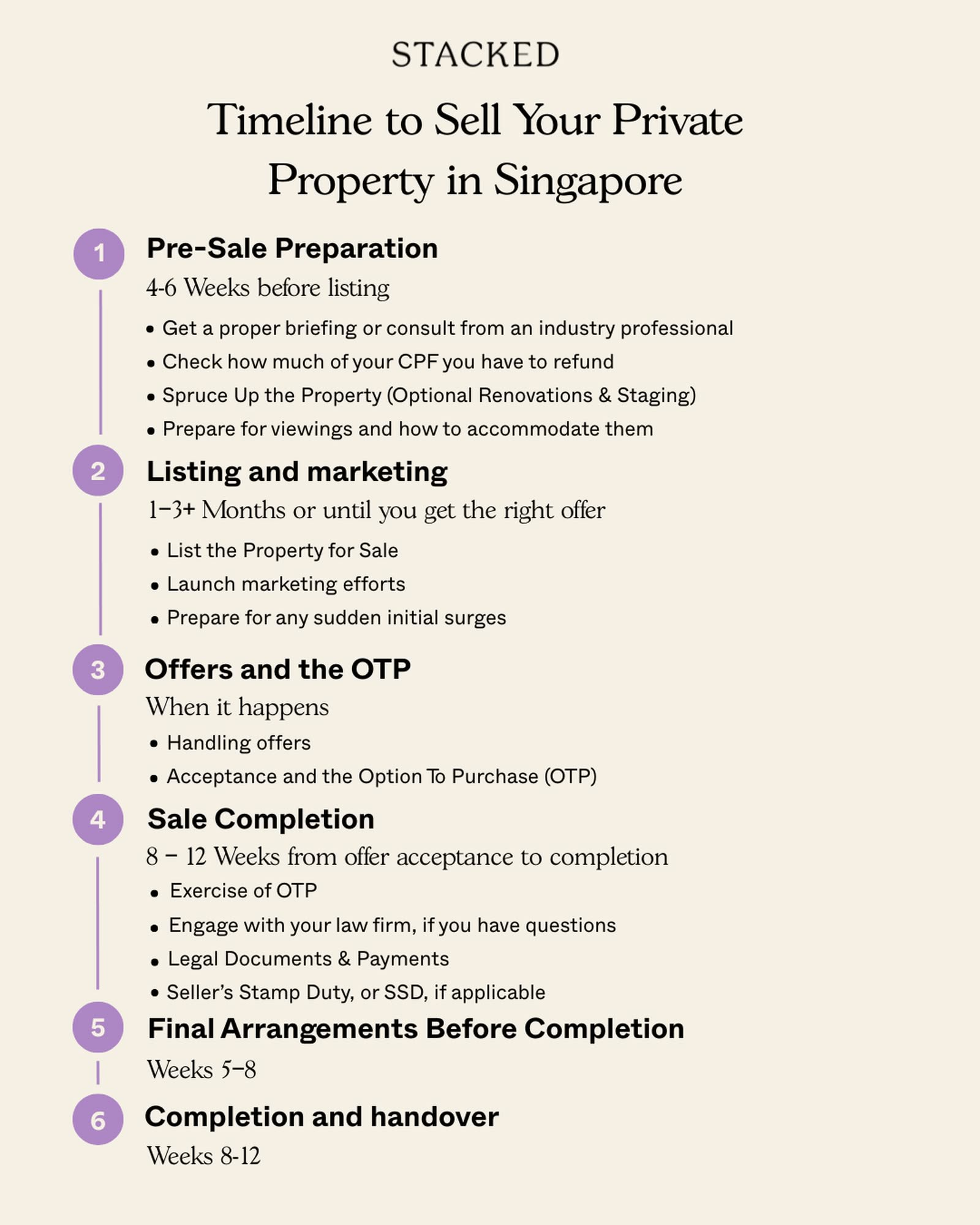
So many readers write in because they're unsure what to do next, and don't know who to trust.
If this sounds familiar, we offer structured 1-to-1 consultations where we walk through your finances, goals, and market options objectively.
No obligation. Just clarity.
Learn more here.
Pre-sale preparation (4–6 weeks before listing)
Before you even have your listing up on a portal, there are a few key steps to go through:
1. Get a proper briefing or consult from an industry professional
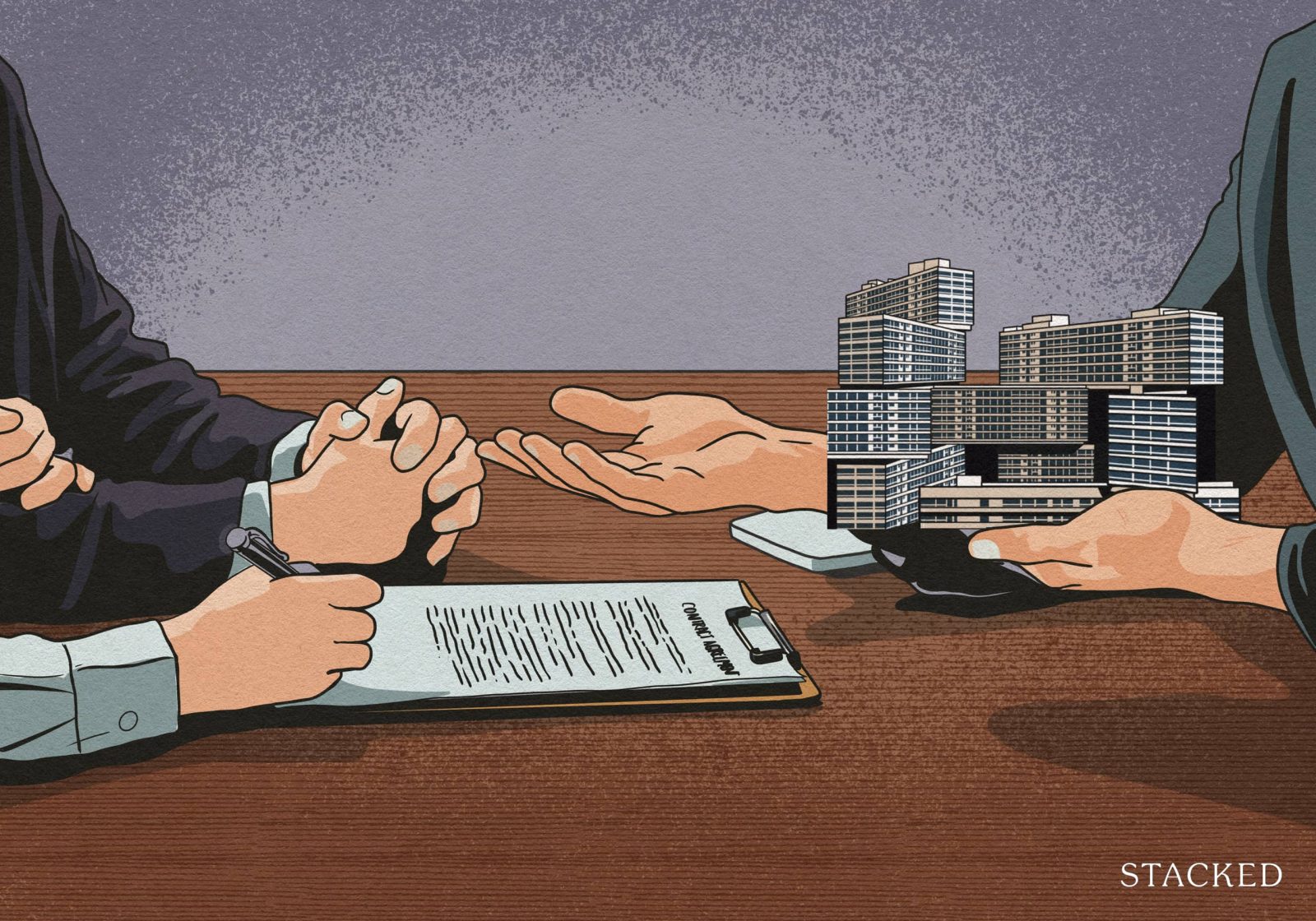
This is regardless of whether you intend to conduct the sale yourself, use a fixed fee agent, a regular agent, etc. This is for the simple fact that, sometimes, new sellers may miss key issues.
Your property may still be within the Sellers Stamp Duty (SSD) period, for example, which applies within the first three years of having bought it (sale proceeds will be taxed at 12 per cent for the first year, eight per cent on the second year, and four per cent for the third year).
Real estate agents can also help with crucial issues, such as selling when your unit is currently tenanted or selling at a low point in the market. It’s important to be clear on these issues first, as it affects the overall decision on whether to sell.
This is also the stage at which to get valuation figures and set your prices. If an agent points out that your expected prices are too high, this could affect decisions such as the possibility of upgrading (so again, you may decide not to sell at all). So, decide in advance the minimum price you’ll accept.
If you have an outstanding mortgage, do check the total loan amount you need to repay with interest. This is important because it determines your net total from the sale, helping you to plan for the replacement property. Also note that some banks have a lock-in period and may charge a penalty fee for early loan redemption, typically around 1.5 per cent of the redeemed loan amount.
Finally, do discuss your agent’s service fee (typically two per cent of the sale price, although this is negotiable).
2. Check how much of your CPF you have to refund
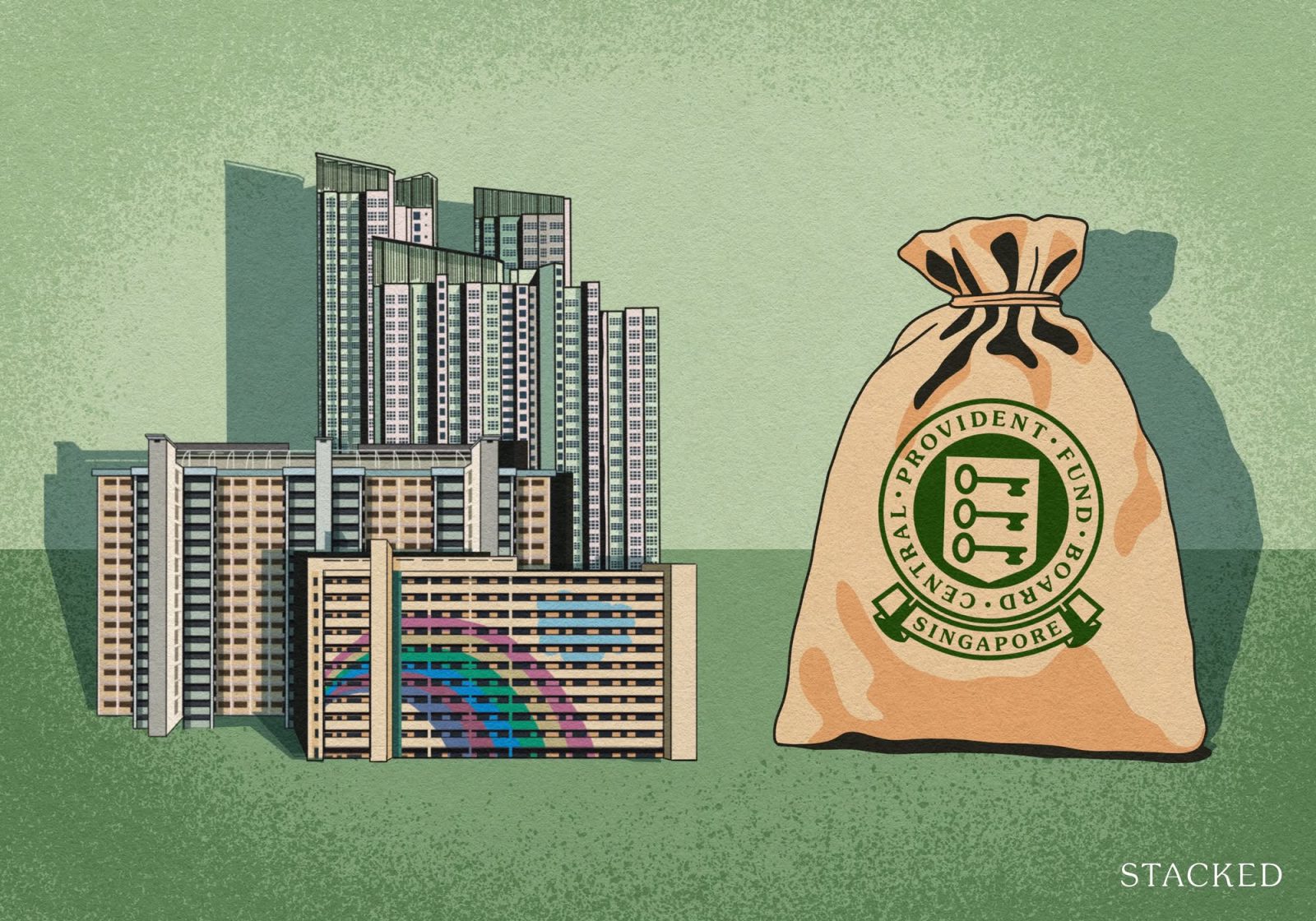
If you used CPF to purchase the property, now’s the time to work out how much you need to pay back into it. You need to refund the entire amount used, plus the accrued interest (currently 2.5 per cent).
You need to log in to your CPF account to see the exact amount to refund. For your replacement property, remember the minimum down payment is at least five per cent; so there’s a chance you’re facing a shortfall after your CPF refund.
Note: You do not need to top up the difference if your sale proceeds cannot cover the full CPF refund. It just means you’ll be left with no cash in hand for your next property purchase.
3. Spruce Up the Property (Optional Renovations & Staging)

Attend to minor repairs (fix leaky faucets, replace burnt-out bulbs, touch up paint) so the home is in good shape. Just be careful not to go too far, such as installing new feature walls or a walk-in. Try to avoid going beyond the basics, as potential buyers may not be impressed enough to pay more.
Alternatively, if you’re in a rush and the property has maintenance issues, you may ask that the buyer accept the property “as is.” This can lead to lower offers, though, and weaker saleability if the maintenance is poor.
4. Prepare for viewings and how to accommodate them

Coordinate with your agent on when to go live with the listing. Mainly, you want to be sure you’re ready to accommodate viewings once the listing is up. It’s ideal if you’ve already bought a new property and can move in there, but not everyone is this lucky.
Odds are, you may need to be away at certain hours or weekends, while the agent is showing off your home. While you can choose to be present, try to vacate during viewings so buyers can speak freely with their agent and imagine themselves in the space. Buyers also tend to stay longer and feel less hurried.
If the property you’re selling is tenanted, the viewing schedule becomes tricky; your tenants need to be okay with the possible intrusions. We know some agents who will refuse to take on tenanted listings, because of this particular difficulty. One tenant isn’t too much of a problem, but getting permission from six unrelated tenants can make viewings a very tough chore.
Bonus Stacked tip: Tiny touches like fresh air (open the windows prior), a light pleasant scent, or gentle background music can create a much stronger first impression, and it costs almost nothing.
Listing and marketing (1–3+ Months, or until you get the right offer)
1. List the Property for Sale
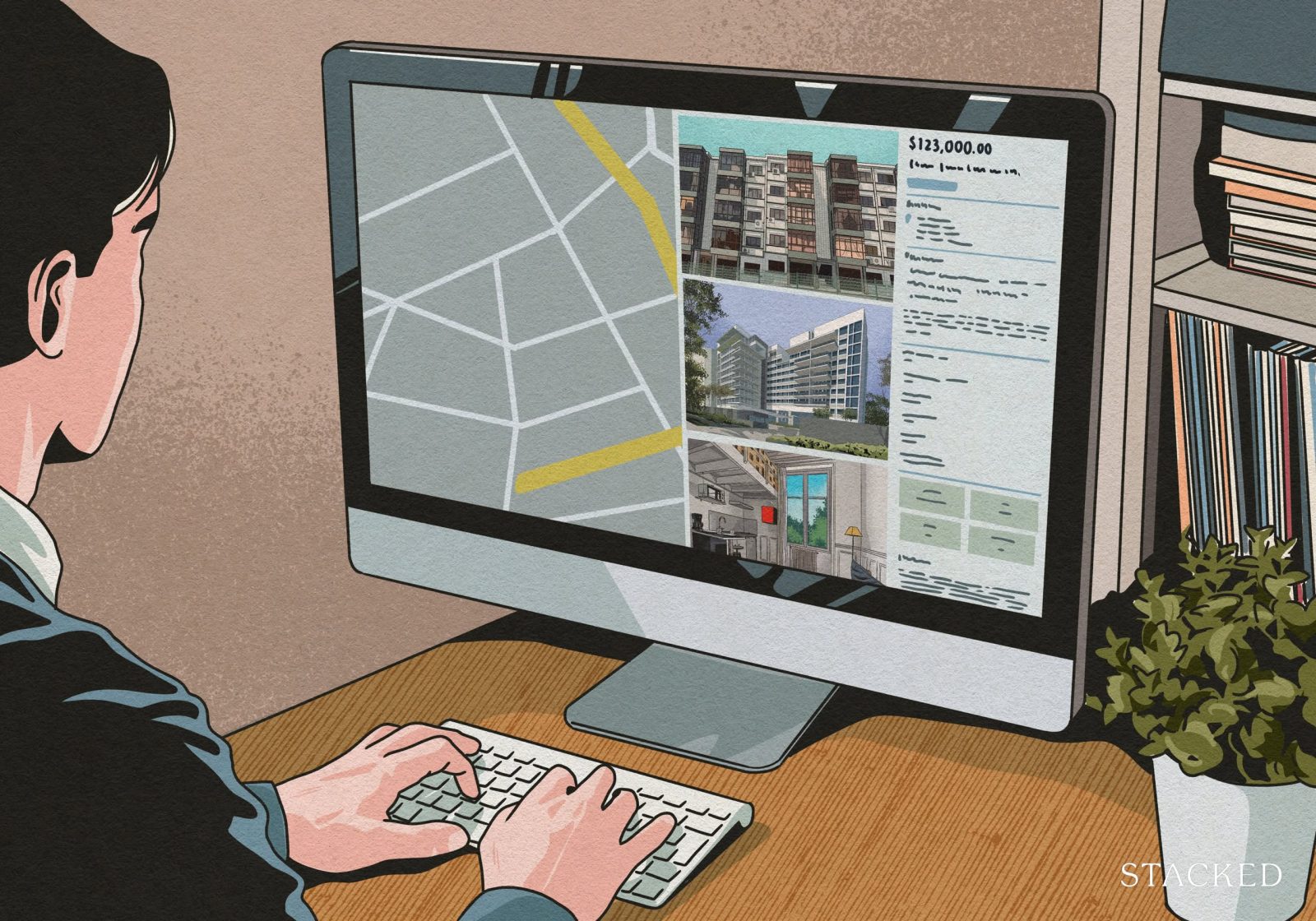
This is one major reason to avoid a DIY approach. Most (but not all) of the major property portals don’t allow individuals to list; you’ll need a valid CEA license to use their service. For DIY sellers, you’ll be confined to the smaller property portals.
The listing should feature professional photos, an enticing description of your unit’s best features (e.g. view, renovations, amenities), and a mention of surrounding amenities. This is a good gauge of an agent’s competence by the way: avoid those who don’t even take proper photos, can’t explain their strategy for boosting your listing, or just steal other agents’ listing descriptions. We’ve even seen some agents who just copy and paste the portal’s own description of the condo.
2. Launch marketing efforts

A proactive, full-service agent will sometimes market your condo through multiple channels, online ads and social media included (though these sometimes entail a higher service fee). If you don’t have an agent, however, you usually need to start your own marketing efforts around this time – don’t forget that you can make your own videos or write about your listing on your social media.
This isn’t a one-time thing, and you’ll find you need to tweak the marketing efforts throughout the sales process. For example, if another unit near you is an outlier that sells for a high price, you can use it to your advantage: show the transaction to prospective buyers, and point out that your unit costs less despite being in the same stack, or just a few floors down.
3. Prepare for any sudden initial surges
Once listed, interest can spark as early as day one. In fact, many sellers find interest is highest in around the first two weeks: your new listing is a novelty, for those who have already been looking in the area. So you need to ensure you’re prepared to entertain these early inquiries.
The toughest challenge for first-time sellers is the fear of an offer being “too early.” But keep in mind the highest offers may come earlier, when the listing is fresh. Waiting may just bring lower offers later, as your listing becomes “stale.”
Sales can happen in as little as a single day after listing, to well over six months. Stay flexible and patient, but don’t hesitate to “take the money and run” if by chance the earliest offer is generous.
As an added tip, be responsive to enquiries!
Allow your agent to schedule viewings as soon as they possibly can: serious buyers often shortlist and view many properties in a short span. If you’re not prompt for viewings, other sellers will be.
A good agent will also keep track of interested parties and follow up for feedback after viewings, which can inform any adjustments in your approach.
Offers and the OTP (as and when it happens)
This is the stage where you finally get offers and enter negotiations. As mentioned above, it can happen in a single day, or it may take much longer.
1. Handling offers
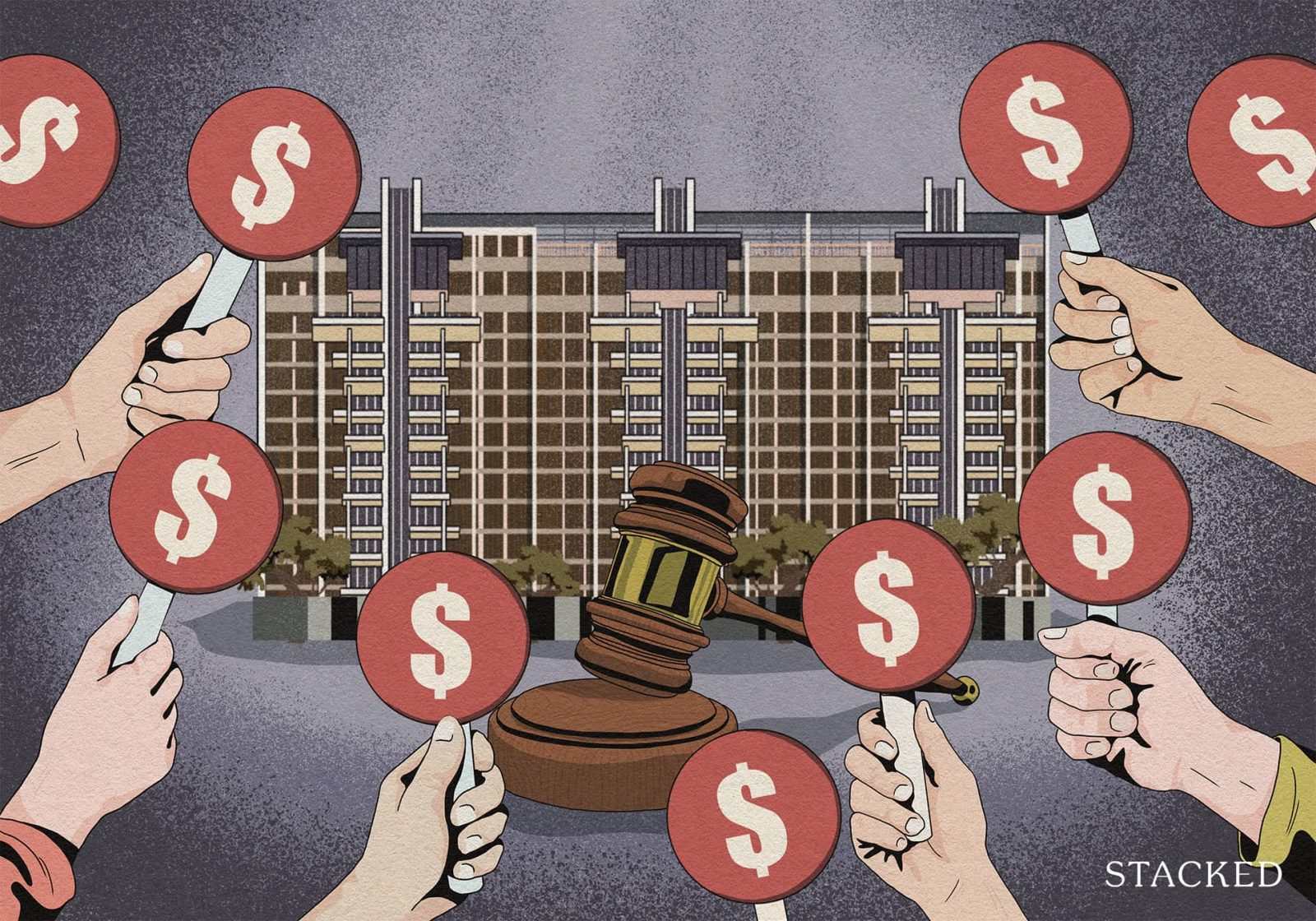
If a buyer is interested, they will put forward an offer (usually through your agent). This may be below your asking price, but that’s okay: it doesn’t mean they won’t negotiate. Some buyers may try to lowball you at the start, but will ultimately go much higher if you see through their veneer of limited interest.
As mentioned above, you should have a clear minimum price in mind; but look out for other “extras.” Some buyers may also want to negotiate issues like the move-in date (e.g. they’ll give you more time to move out, in exchange for a slightly lower price, fixing the stove for them, etc.)
Do respond in a timely manner with acceptance or counter-offers. Once again, serious buyers are almost certainly looking at units other than yours, and may have other negotiations going on. A slow response might cost you the sale.
Also, be aware that the process of fielding offers and signing an OTP (see below) can happen quickly, such as within a single day, or may stretch over a few rounds of viewings and weeks of deliberation. Be mentally prepared that this stage’s length is variable.
Bonus Stacked tip:
If there are decisions agreed with your buyer about extensions, make sure these are in writing, and signed by both sides. This will prevent legal entanglements later, such as if buyers fail to keep their word (e.g., they agree to let you move out later, but then insist you need to vacate earlier once the transaction is completed).
2. Acceptance and the Option To Purchase (OTP)

Once a serious buyer comes along and you agree on the price, issuing the OTP is swift, usually on the spot, or within a day of agreeing on terms.
At this stage, you (usually via your agent) will hand the buyer the OTP document. The OTP is a legal contract that gives the buyer the exclusive right to purchase the property at the agreed price, within a set period. In private property transactions, the OTP period is commonly 14 days (this can sometimes be negotiated).
Once the OTP is issued and you have taken the Option fee, you cannot sell the unit to anyone else during the option period. So yes, even if a former interested buyer comes back and says they want to raise their offer now, it’s too late. You can’t accept it even if it’s higher than the current buyer’s.
In the unlikely event the buyer backs out – even after the OTP is secured – the Option fee is non-refundable. You can keep it and carry on with marketing your unit.
Sale Completion (8 – 12 weeks from offer acceptance to completion)
The buyer has until the OTP expiry (commonly 14 days) to exercise the OTP, which means to proceed with the purchase. You should use this time to engage a conveyancing lawyer if you haven’t already, to represent you for the next phase of the sale.
A quick note on one party being overseas:
When determining the OTP validity period, a common reason for extension is one of the parties being overseas. E.g., if the prospective buyer is abroad, they may ask for a 21-day validity period instead. This is because signing the contract while abroad requires extra steps, such as going through a notary public. This may increase the amount of time required to complete the deal.
1. Exercise of OTP
When the buyer decides to proceed, they exercise the OTP by signing it and paying you the remainder of the down payment (usually an Exercise Fee of four per cent of the price).
Note that you receive the one per cent deposit first, and the next four per cent only when the OTP is exercised. You don’t receive all five per cent right away, so factor this into your liquidity planning.
Upon exercise, the OTP becomes a binding Sale & Purchase (S&P) Agreement. Your lawyer or agent will receive the signed documents and the exercise fee, which is typically held by your lawyer to be later disbursed.
There isn’t much for you to do during this part, other than wait on the buyer.
2. Engage with your law firm, if you have questions
Not everyone does this, and some sellers never have more than a few cursory words with the relevant lawyer. But you can ask questions as, behind the scenes, your lawyers will liaise with the buyers’ lawyers and relevant parties (e.g., banks, CPF Board, and government agencies) to prepare for the title transfer.
As the seller, your lawyer’s duties include drafting the S&P Agreement (if a separate one is needed), requesting redemption statements from your bank (to find out your outstanding loan amount to repay,) coordinating with CPF for the refund amount (if you used CPF,) and ensuring any existing legal charge on the property is cleared by completion.
3. Legal Documents & Payments

At this stage, the lawyers will contact you, and you’ll sign the completion paperwork at your lawyer’s office. This can include the S&P Agreement, authorisations to pay off your loan and CPF, and a transfer document.
Your lawyer will typically collect part of their legal fee at this point as well.
4. Seller’s Stamp Duty, or SSD, if applicable
If you are liable for SSD (you’re selling within three years of buying), this is the time it must be settled. SSD must be paid within 14 days from the date the OTP is exercised (i.e. the sale contract date).
Your lawyer will usually handle the filing and payment to IRAS on your behalf, using the sale proceeds. SSD rates are 12 per cent if sold within one year, eight per cent within two years, four per cent within three years.
Final Arrangements Before Completion (Weeks 5–8)
As the completion date (also called the completion appointment) approaches, you should prepare to hand over the property. Typically, the completion is scheduled about 8–10 weeks after the OTP exercises.
During this wait, you must continue maintaining the condo’s condition. You are obligated to deliver the unit in the same state as when the buyer agreed to purchase it, aside from normal wear and tear. So, in the off chance there’s a disaster, like a kitchen fire during this time, you are obliged to restore it.
It’s common for buyers to request a final inspection a few days before completion. This is to verify that the property is in agreed-upon condition and vacant. Coordinate with your agent and the buyer for this inspection.
Many sellers aim to move out a few days before completion, to allow time for cleaning.
Completion and handover (Week 8–12)

On the completion day, all parties will meet; usually at the offices of the buyer’s solicitor. The seller typically sends their lawyer to represent them at this meeting, so there’s no need to go in person (you can if you want to, of course.)
At completion, the remaining balance of the purchase price is paid by the buyer (the method of monetary transfer will be explained and handled by your law firm). In exchange, your lawyer will hand over the keys and legal transfer documents to the buyer’s lawyer.
The property’s ownership officially transfers to the buyer on this date. Congratulations, you just sold your private property!
A final note on receiving sale proceeds:
Your outstanding mortgage will be redeemed from the sale monies first (your lawyer will handle this payment to the bank).
Similarly, any CPF used (plus interest) will be returned to your CPF account shortly after completion, usually within about two weeks. You can still use this CPF money for your next property.
Finally, all agreed fees (your lawyer, agent commission, etc.) are paid out. After these disbursements, any remaining cash balance is the net sale proceeds due to you. This amount is often issued as a cashier’s order, or transferred to your bank account if you request it.
Sellers generally receive their net proceeds on the completion date itself, to facilitate the purchase of the replacement property.
The challenge with selling a property isn’t always just finding buyers, it’s sometimes a complication in the transaction process. Too many buyers struggle with questions like whether it’s too early to accept an offer, or how long it takes to see sale proceeds; but we hope you now have a clearer sense of the timeline for a successful sale.
At Stacked, we offer advice and solutions on Singapore property market complexities, and we’ve reached out and helped many Singaporeans on both the buyer and sellers’ sides. Curious how these principles apply to your property sale? Let’s chat.
At Stacked, we like to look beyond the headlines and surface-level numbers, and focus on how things play out in the real world.
If you’d like to discuss how this applies to your own circumstances, you can reach out for a one-to-one consultation here.
And if you simply have a question or want to share a thought, feel free to write to us at stories@stackedhomes.com — we read every message.
Ryan J. Ong
A seasoned content strategist with over 17 years in the real estate and financial journalism sectors, Ryan has built a reputation for transforming complex industry jargon into accessible knowledge. With a track record of writing and editing for leading financial platforms and publications, Ryan's expertise has been recognised across various media outlets. His role as a former content editor for 99.co and a co-host for CNA 938's Open House programme underscores his commitment to providing valuable insights into the property market.Need help with a property decision?
Speak to our team →Read next from Property Advice

Property Advice We Sold Our EC And Have $2.6M For Our Next Home: Should We Buy A New Condo Or Resale?

Property Advice We Can Buy Two HDBs Today — Is Waiting For An EC A Mistake?

Property Advice I’m 55, Have No Income, And Own A Fully Paid HDB Flat—Can I Still Buy Another One Before Selling?

Property Advice We’re Upgrading From A 5-Room HDB On A Single Income At 43 — Which Condo Is Safer?
Latest Posts

Overseas Property Investing This Singaporean Has Been Building Property In Japan Since 2015 — Here’s What He Says Investors Should Know

Singapore Property News REDAS-NUS Talent Programme Unveiled to Attract More to Join Real Estate Industry

Singapore Property News Three Very Different Singapore Properties Just Hit The Market — And One Is A $1B En Bloc




































0 Comments